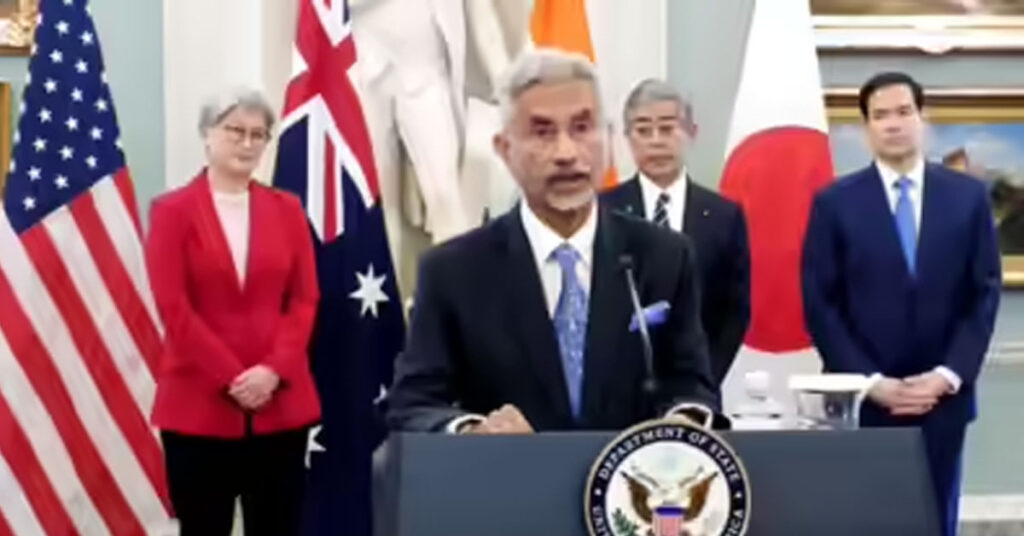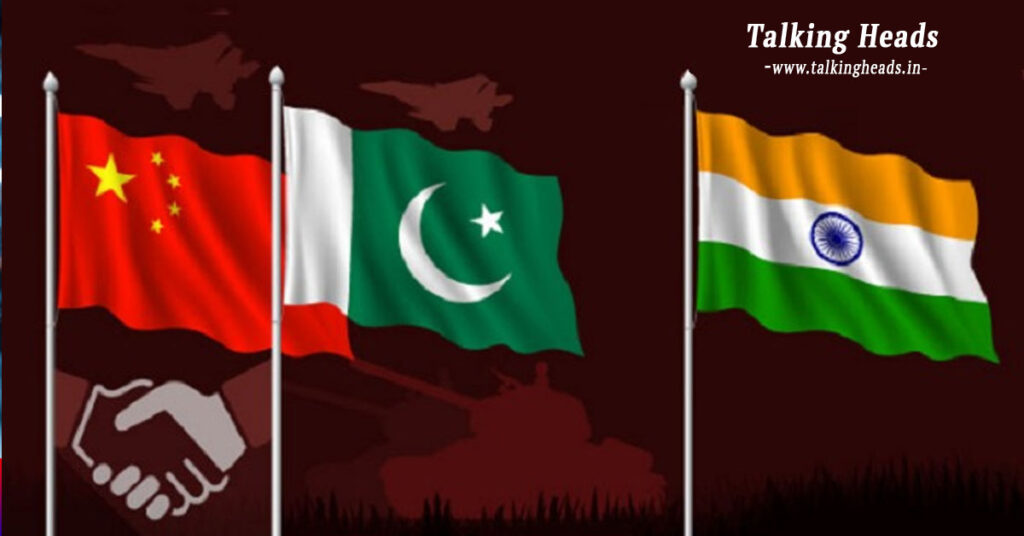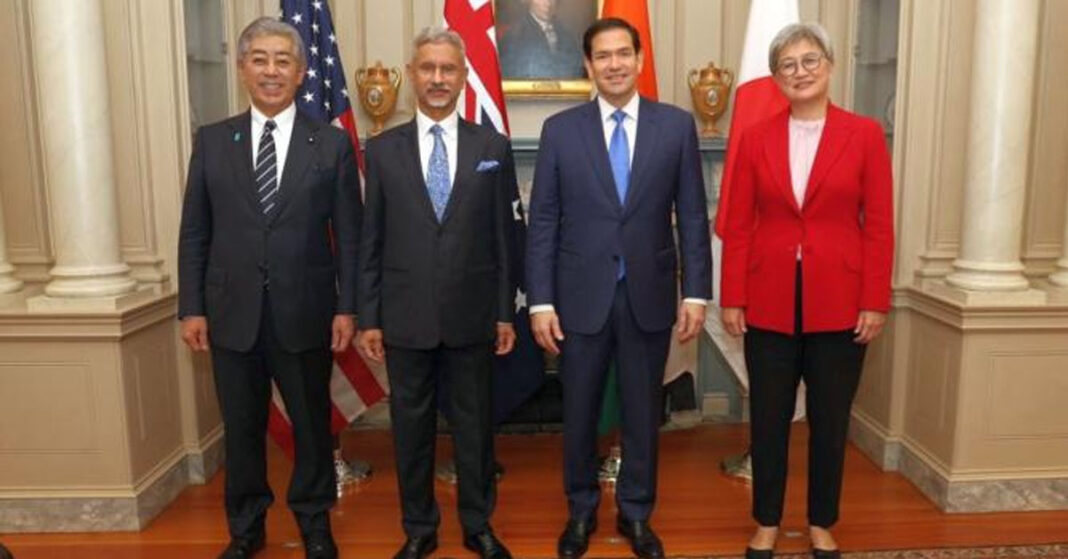Table of Contents
Quad Denounces Terrorism, But Stays Silent on Pakistan’s Role
Quad: In a recent meeting held in Washington, D.C., the Quad nations—India, the United States, Australia, and Japan—issued a strong condemnation of the April 22 terror attack in Pahalgam, Jammu & Kashmir. The joint statement explicitly denounced all forms of terrorism, including cross-border terrorism, and reaffirmed their commitment to global counter-terror cooperation.

However, the statement conspicuously avoided naming Pakistan, despite India’s repeated assertions that the attack was executed by terrorists who had crossed over from Pakistan. This silence has raised eyebrows in New Delhi, where officials have consistently labeled such incidents as clear cases of state-supported cross-border terrorism.
India Sees Shift in U.S. Stance Toward Pakistan
Analysts in India are noting a possible softening of Washington’s posture toward Islamabad. Earlier in June, Pakistani Army Chief General Asim Munir was hosted for lunch at the White House by U.S. President Donald Trump—a gesture seen as a diplomatic overture. Shortly after, Pakistan recommended Trump’s name for the Nobel Peace Prize.

India has viewed these moves with caution, especially as they come after a series of violent incidents following the India-Pakistan ceasefire agreement. According to former Indian Foreign Secretary Kanwal Sibal, India’s strong words at the Quad forum—especially from External Affairs Minister S. Jaishankar—served as a direct, unequivocal message aimed at Pakistan.
SCO Fails to Address Terrorism, Reflects China-Pakistan Influence
While the Quad made terrorism a central theme in its joint statement, the Shanghai Cooperation Organisation (SCO) fell short. During a recent SCO meeting, India refused to sign the joint declaration, citing inadequate language on terrorism. Ministry of External Affairs spokesperson Randhir Jaiswal revealed that objections from one member state prevented the inclusion of stronger anti-terror language—hinting at Pakistan’s influence.

Media reports claim India found the SCO statement biased, particularly because it mentioned terrorism in Balochistan—an issue Pakistan frequently raises against India—while ignoring the Pahalgam attack entirely. This selective focus is seen as aligning with Pakistan’s narrative and undermining India’s concerns.
Quad Aims to Counter China’s Growing Influence
Beyond terrorism, the Quad joint statement also addressed rising geopolitical tensions in the Indo-Pacific. The four nations expressed strong opposition to unilateral attempts to change the status quo in the East and South China Seas through force or coercion—an unmistakable reference to China’s assertive maritime behavior.
To counter Beijing’s dominance in critical supply chains, the Quad announced the launch of the “Quad Critical Minerals Initiative.” This effort aims to diversify mineral sourcing and reduce dependence on China. The initiative is set to involve 30-40 private sector firms across Quad nations, who will collaborate on securing and stabilizing mineral supply routes vital for economic resilience.
Quad Flags North Korean Threat, Urges Global Vigilance
The Quad also raised alarm over North Korea’s ongoing missile tests and suspected nuclear activities. The alliance warned nations against providing Pyongyang with any form of military or technical assistance, reinforcing its position on non-proliferation and regional security.
Conclusion: A Tale of Two Forums—Quad vs. SCO
The contrasting approaches of Quad and SCO underline a growing divide in global geopolitics. While the Quad is increasingly positioning itself as a strategic platform against terrorism and authoritarian expansion, SCO appears to be more influenced by internal political dynamics, especially those of China and Pakistan.
India’s refusal to accept a watered-down anti-terror statement at the SCO reflects its frustration with platforms that fail to recognize or act against terrorism originating from across its borders. In contrast, the Quad, despite its silence on Pakistan, is seen as more aligned with India’s strategic and security concerns in the region.










